15+ Sample Land Contract Forms
-
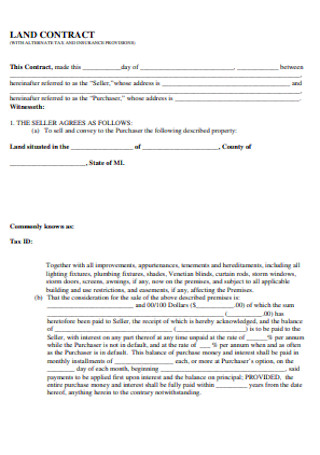
Land Contract Form Format
download now -
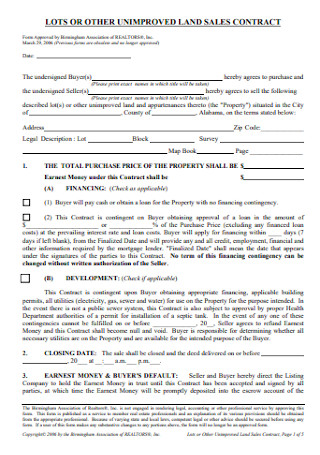
Land Sales Contract Form
download now -
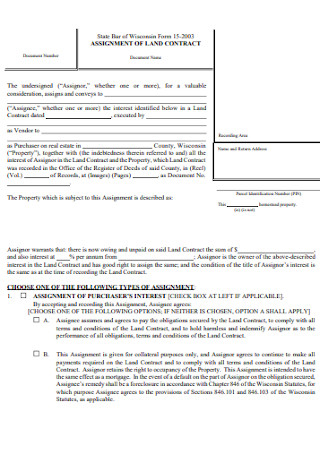
Assignment of Land Contract Form
download now -
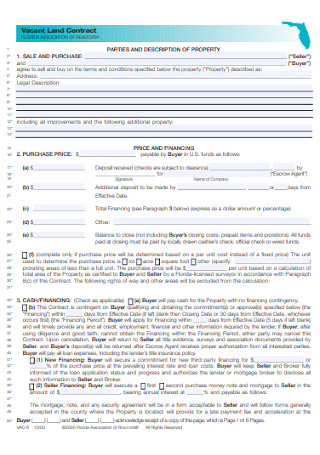
Vacant Land Contract Form
download now -
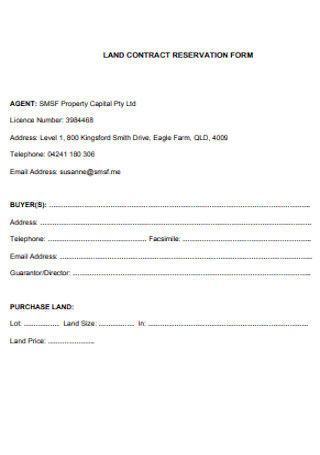
Land Contract Reservation Form
download now -
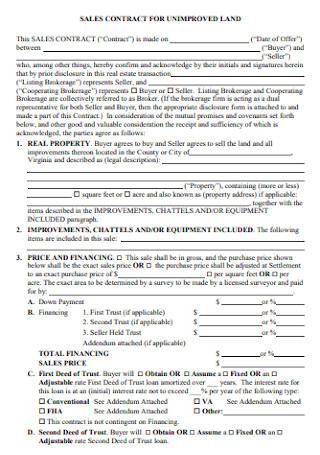
Land Sales Contract for Form
download now -
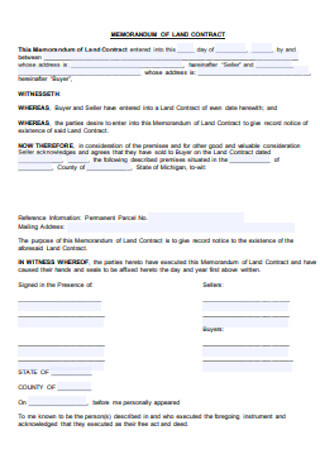
Memorandum Land Contract Form
download now -
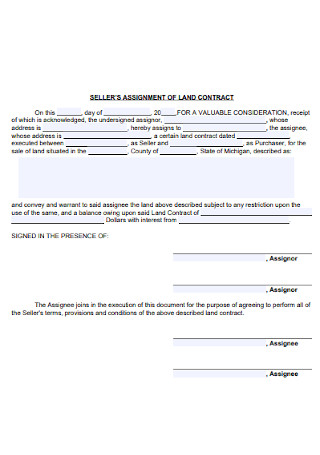
Sellers Assignment of Land Contract Form
download now -
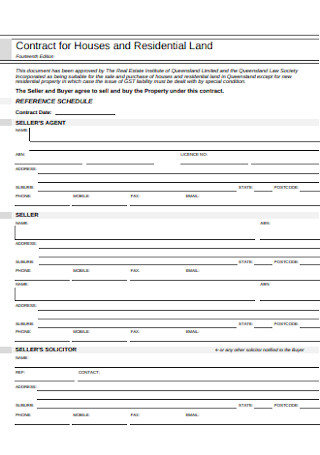
House and Land Contract Form
download now -
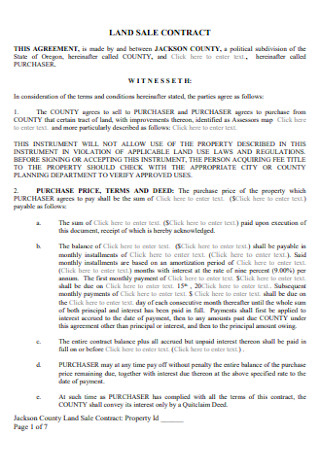
Sample Land Sale Contract Form
download now -
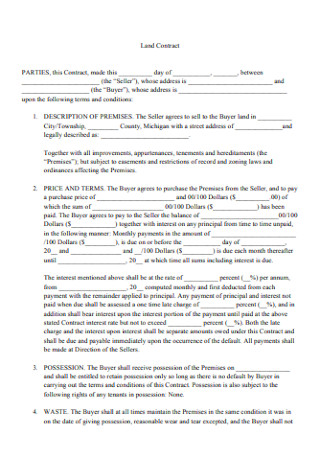
Sample Land Contract Form
download now -
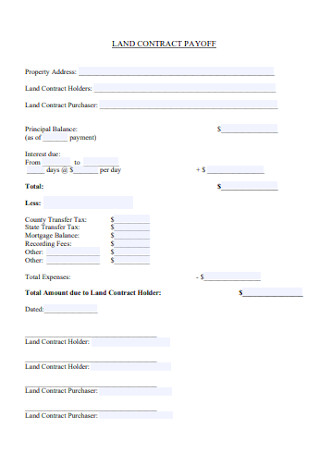
Land Contract Payoff Form
download now -
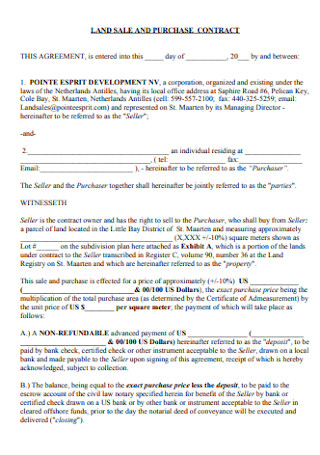
Land Sale and Purchase Contract Form
download now -
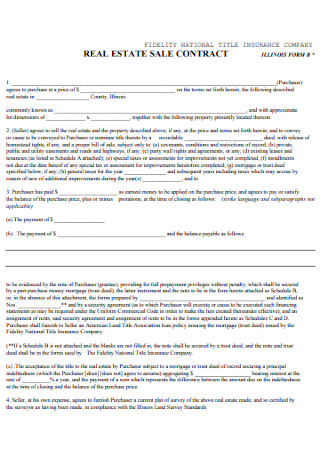
Real Estate Sales Contract Form
download now -
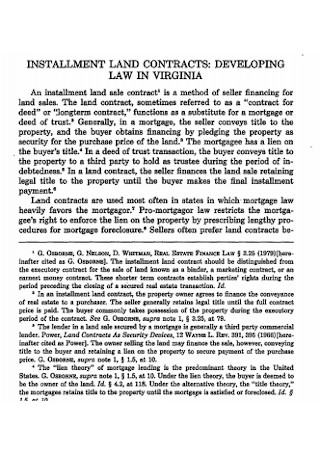
Installment Land Contract Form
download now -
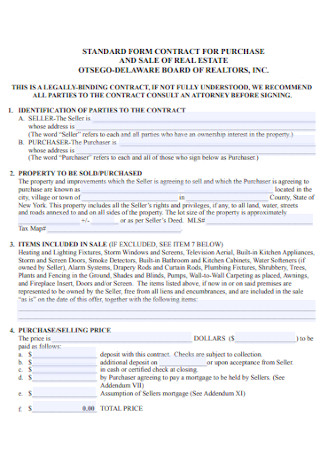
Real Estate Land Contract Form
download now
FREE Land Contract Form s to Download
15+ Sample Land Contract Forms
What Is a Land Contract Form?
Parts of a Land Contract Form
Steps in Legally Acquiring Land through a Land Contract
FAQs
Pros and cons of a land contract
What is a balloon payment?
What is the difference between cash, bank financing, and seller financing in land contracts?
Where is the ideal location to buy land in the United States?
Converting land contract into a traditional mortgage
Is it worth risking to take a land contract over a mortgage?
What Is a Land Contract Form?
A land contract form is a document that details a contract of sale for a piece of land or real property. It is a legal record between a buyer and seller. The contract specifies between the parties the terms and conditions of the agreement, rights, obligations, and responsibilities before accomplishing the deed of sale. Land contracts have a broad definition, and they usually involve both land and real estate sale. Land contracts are dreadful to navigate, and it is advisable to consult an attorney knowledgeable in this matter. Plenty of land contracts are seller-financed, meaning the potential buyer is acquiring the land directly from the seller or owner.
According to the data posted by Statista in 2020, the total acquisition of homes reached over 5.64 million in America. Despite the impact of the pandemic, a lot of Americans purchased land in the past year. It means that Americans understand the value of land acquisitions.
Parts of a Land Contract Form
A land contract form has different forms, depending on the seller of the land. Despite this, there is information that is common in all land contract forms. Here are the items that you’ll see in a land contract form.
Steps in Legally Acquiring Land through a Land Contract
Obtaining land is a decision that takes a lot of time and planning. It involves not only a large amount of money but is also of legal concern. Below is a guide to help you acquire a piece of land through a land contract agreement.
Step 1: Make an Offer
Making an offer after you’ve thoroughly researched the area is the first step to closing a deal. As the buyer, you have to indicate the information you gathered and send details to the seller or the representative making the sale. It is practical to compare different prices of land in the area where you’re planning to purchase. As a customer, it is essential to obtain title insurance and consult a real estate attorney before engaging in any contracts.
Step 2: Allow the Seller to Contact You
The seller needs to agree, reject, or make a counteroffer regarding the terms of the agreement. The seller needs to run background checks on the buyer, ensure that both parties’ information is present in the contract, and consult with a real estate attorney to ensure the conditions of the contract are acceptable. When it is accepted, the buyer pays for the agreed-upon deposit and begins their due diligence period.
Step 3: Due Diligence Period
The due diligence period allows the buyer to inspect and conduct tests on the property he wishes to purchase. The buyer communicates with the seller regarding any changes or modifications relating to the property. It includes getting permits, performing inspections, and any other contingencies identified by the agreement. The period is required to accurately investigate the area in terms of the buyer’s intention.
Step 4: Closing Of the Property
The buyer must obtain funds to purchase the land. The choices include cash, bank financing, or seller financing. If the buyer is seeking to pay in cash, then the deal is settled immediately. In the case of bank and seller financing, the buyer completes the necessary paperwork. After which, both parties settle on a closing date.
Step 5: Registration of the Agreement
Signed by both parties, the deed acts as a legal document providing the ownership of the land. After, the seller hands over the equity title to the buyer. The recorder’s office files the record following the tax collection of the state. Both the seller and buyer pay for the tax on property sales.
FAQs
Pros and cons of a land contract
A land contract is one of the many ways to purchase land. Like any other means, it can have its pros and cons. Here are some of the things you need to know when using land contracts in purchasing a property.
PROS:
- Most land contracts interest buyers. It is because land contracts offer terms that are easier for the buyer to afford a property. In this case, sellers get plenty of offers when they use land contract agreements.
- The downpayment is negotiable. Most sellers do not require a downpayment exceeding 50% of the total cost of the property. Upon the fulfillment of the land contract, the buyer can already move into the property.
- Relaxed financial criteria. Land sellers are easing up on requirements when it comes to supporting buyers’ purchases compared to banks. By doing this, it allows clients to purchase land easier.
- Easier ownership. A land contract’s terms are more manageable than traditional mortgages, making it easier for property owners. Even buyers that have credit difficulties can qualify for a contract.
- Interest deductions. The buyer can claim interest and real estate tax deductions when calculating their income taxes. It happens because the client is the lawful owner of the land.
- No interest on missed payments. In the parts of a land contract form, there is a part where the seller can terminate the sale. It is stated under the law that the buyer can end the agreement without judicial action or foreclosure. The seller also acquires the land in no less than 60 days.
- The seller has a steady income. It is advantageous to sellers that own the property.
CONS:
- Foreclosure laws do not benefit the buyer. Once the buyer misses any payments related to the agreement, it is the seller’s right to retract the contract and reclaim the property.
- Maintenance and repair costs. Any maintenance and repairs made to the property are all shouldered by the buyer.
- In case the buyer loses the contract, the seller does not shoulder any costs related to the agreement. Along with this, the seller will gain the property back along with all the payments made.
- The seller keeps the land title. The seller can opt for a higher mortgage or include other fees to the buyer of the property. Note that the only way for the buyer to obtain the deed is to pay all his dues.
What is a balloon payment?
A balloon payment is an amount that satisfies the remainder of the loan at the end of the loan term. The balloon payment doesn’t fully amortize over a loan period. For example, the loan term is for 15 years. The buyer pays for equal installments for the first five years and then the remaining balance in a huge balloon payment. This type of payment is common when it comes to land contract agreements. It is wise to bring up this matter to the seller if you are buying land. A fair negotiation between both parties is ideal, especially in terms of payment.
What is the difference between cash, bank financing, and seller financing in land contracts?
Cash indicates the buyer satisfies the total value of the property without requiring loans and other financial aid. As it involves large sums of money, the purchaser needs to present third-party documentation on the availability of funds when paying the entire price upfront. The contract also states the date of the presentation of the document. There are several options available for the buyer when it comes to bank financing. One is a conventional loan, wherein a private organization will help finance the expenses. The borrower pays off the insurance.
The second option is the FHA loan or the Federal Housing Association loan, and the third is the VA loan or the Veteran’s Affairs Loan. In stating the second and third options, the buyer must attach the required documentation to support the claim. Seller financing is where the seller of the property defines the terms of payment. The seller and buyer agree on the amount of loan, down payment, amount of interest per annum, and loan term. Both parties also agree on a definite date where the buyer presents the documents to support paying the loan.
Where is the ideal location to buy land in the United States?
According to an article by USA Today, the highest price of land per acre reported is in New Jersey, amounting to $196,410. Different states have different prices. The best way to determine where to buy land must include your budget, proximity to resources, and work. If you are buying for you and your family, you must also consider the location where family members go to school or work. The property you choose to occupy must convenience every member involved and not just for the sake of your comfort. Also, keep in mind any additional expenses along the way.
Converting land contract into a traditional mortgage
According to the statistics released by the U.S. Census Bureau and the Department of Housing and Urban Development for February 2021, the average sales price for houses is $416,000. Land acquisition costs are high compared to recent years. Most buyers resort to converting the land into a traditional mortgage. By doing so, you can get better terms and lessen payment values. The lender also receives a copy of the land contract with the payment records to verify the conditions of switching to a mortgage. Essentially, land contracts and mortgages are similar. The only difference is that land contracts guarantee the deed of the property only after the buyer paid the total purchase price.
Is it worth risking to take a land contract over a mortgage?
Land contracts are faster, easier, and simpler opposed to a traditional mortgage. It is also riskier. The safest ways to acquire land contracts are with a trusted real estate attorney and a non-profit housing association. Non-profit organizations use land contracts to appeal to buyers that cannot avail of a mortgage, as it requires many documents and processes. A mortgage is an expensive process because it aims to protect the seller and buyer of the property. The main point is if you cannot assure yourself that the land contract is the safest solution, do not get one. The risks overweigh the benefits no matter where you look. Patience is the key to acquiring the best place suited for you.
Acquiring land is not a walk in the park. It’s a long-term investment and a long process that needs complex research. However, once you’ve settled on the land that you want and undergo a thorough process of due diligence, everything will slowly fall into place. A land contract is an acquisition that not only raises personal assets but can also be a way to improve family relations through convenience. Just make sure to weigh out all possible solutions when taking a land contract.
Remember that the best advice comes from someone with enough knowledge in the field. Understand the risks that accompany the decisions you make after having thorough research and advice. In the words of Phil McGraw, “Sometimes you make the right decision, sometimes you make the decision right.” It all starts with a single click to know where to begin searching about land contracts. Start learning about land acquisitions by familiarizing yourself with a land contract form above!
